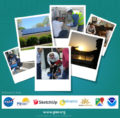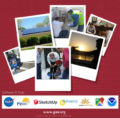However, others striving for or in sobriety may find themselves asking “Why is sobriety so hard? ” Lifestyle modifications can be uncomfortable and perhaps even generate anger and resentment. With your support network, mark milestones in your sobriety, whether they’re days, weeks, months, or years.
Fear of Facing Your Damage
Coping mechanisms are tough—they work temporarily, and allow us to avoid and put things aside for the time being. We use drugs to numb ourselves and our emotions and to push off thinking for another day. But when we no longer have those devices at our disposal, we’re left with only our minds, our willpower and our inner strength to carry us through the hard times. We’re forced to think and analyze our problems, to come up with solutions, and in doing so we may fail or make mistakes. But that’s how we grow and learn, and how we learn to cope better when the next challenge presents itself.
Over time, our ability to cope and come up with solutions that work for us becomes easier and easier. Nifaliophobia is a phobia and anxiety disorder related to the fear of sobriety and facing up to a life without alcohol or drugs. When thoughts of failure come to mind nifaliophobia it’s enough to make anyone start to worry.
- The problem with reducing the quantity and quality of sleep is a lower capacity for regeneration at the cellular level.
- When you are facing these challenges and downright fear of recovery, just focus on what is happening right now.
- Any phobia can potentially lead to increased substance use in an attempt to deal with it, but nifaliophobia is already directly tied in with drinking or drug use.
- As long as I hold on to it dearly, my life in sobriety will only continue to get better.
These methods can help individuals navigate challenging situations more effectively, fostering a healthier recovery process. A strong support network can provide encouragement and reduce feelings of isolation. People experiencing nifaliophobia may avoid situations where substances are absent and feel severe anxiety about living sober. This positive change is most visible among individuals who recover from addictions to liquor and stimulants. The excessive intake of certain chemical compounds typically found in liquor, amphetamines, cocaine, and various designer drugs will always interfere with the skin’s hydration processes. In the case of alcoholics who start to get liver spots, these can go away within four weeks.
Along with providing sober living housing for men in Solana Beach, we work with our individual residents to develop customized plans that integrate treatment, aftercare, and recovery support. Some fears that are directly related to nifaliophobia could include the fear that you will lose your friends or social circle. Many people use substances as a way to avoid problems and specific aspects of reality, which would have to be faced if they sobered up. You may also be afraid of having to confront your past behaviours and the damage you have done to yourself and those around you through your drinking or drug use. You may be afraid of boredom and feel like you need to use drugs or alcohol to have fun. Friends and social circles can often revolve around drinking or drug use, making the transition to sobriety feel isolating.
Navigating Common Sobriety Fears
However, it’s essential to recognize that genuine relationships can deepen as individuals embrace a sober lifestyle. The first thing is that sobriety can be a really hard thing to face for a lot of addicts. You may think that your loved ones will think less of you or not want to be around you. Staying sober means staying clean, and that alone can be a scary thought for many addicts and nifaliophobia alcoholics. Dealing with setbacks or relapses is a common part of the recovery process. It’s important to view these events not as failures but as opportunities for learning and growth.
There are a number of different approaches to treatment for nifaliophobia.
- This therapy involves a combination of breathing techniques, exercises, and meditation techniques to help a person cope with not having a phone or other phobias.
- In the case of nifaliophobia, this can mean preventing you from getting sober even though your drinking or drug use may be harming you and the people around you.
- Once you recognize and accept that you’re afraid, you can begin to address the underlying causes with specific strategies.
- They’ll have to feel emotions again without numbing them with drink or drug and maneuver their way through tricky family and relationship dynamics.
If you’re newly sober and you need help with avoiding relapse, call on the compassionate team at Casa Pacifica. Our services include sober companionship, coaching, and mentorship for those who are recovering from addiction to alcohol and other drugs. For more information about our sober living facilities, call us today. Instead of worrying about being a failure at sobriety find ways to make it successful. When thoughts of failure come to mind it’s enough to make anyone start to worry.
For example, if AUD caused your life structure to crumble, staying in a sober living facility can help you deal with the fear of what comes next. If you have nagging or overwhelming fears, make sure to tell your AA group or counselor about them so rational plans of action can be implemented. Implementing the four D’s can significantly aid in maintaining sobriety.
When you are facing these challenges and downright fear of recovery, just focus on what is happening right now. You can call it fear if you want, but it’s actually a sign of progress. As you delve deeper into the program, you’ll begin to understand the root causes of your fears so you can assuage them.
Can meditation or mindfulness help with overcoming the fear of being sober?
Being at a party or trying to find the perfect romantic partner without alcohol is the stuff of nightmares for many people. Sober movements are redefining what it means to have fun and challenging alcohol’s role in our social lives. Educate your family about your challenges and what you need from them so they know how to support you.
What are the Stats On Rehab and Recovery?
It should be viewed not as a definitive failure but as an opportunity for learning and growth. Developing proactive coping mechanisms, such as mindfulness practices or engaging in new hobbies, can significantly diminish the risk of relapse. Therapy plays a fundamental role in navigating fears related to sobriety.
It can affect your own physical and nifaliophobia mental health as well as hurting people around you. Addiction can damage relationships, cause money issues and affect your work, studies and other aspects of your life. All these worries are valid, but Nifaliophobia is more serious than what could be termed as ‘normal’ apprehension. The NHS says that phobias are a type of anxiety disorder that is more pronounced than fears. It says that a phobia is ‘an overwhelming and debilitating fear of an object, place, situation, feeling or animal’. On one side of the road are all the temptations, urges, and cravings that had led them to the path of destruction.
Job loss anxiety: How to handle the stress of losing your job
A considered approach involves taking things one day at a time and tackling one fear at a time to avoid feelings of being overwhelmed. The mantra “Face Everything and Recover” can help reinforce your courage to confront these challenges throughout your journey. One of the prominent concerns for individuals stepping into sobriety is the fear of lifestyle changes. Sobriety often requires a stark shift from established habits and routines, which can be daunting. Many worry about their ability to cope with everyday life without substances that once provided comfort or escape.
Practicing mindfulness and seeking therapy can help individuals navigate these emotional challenges while promoting healthier coping mechanisms. Surrounding oneself with understanding friends and family can provide emotional stability. These connections offer encouragement and reduce feelings of isolation, making the recovery process more manageable. All psychoactive substances are potentially transformative in the physiological, mental, and behavioral sense. Almost invariably, the changes caused by substance abuse are negative.
Engaging with professionals can help individuals process emotions and develop coping strategies. Likewise, support groups, like Alcoholics Anonymous, create a sense of community and shared experience, essential in tackling fears together. Yes, meditation and mindfulness can be beneficial in managing the fear of being sober. These practices focus on bringing your attention to the present moment, which can help reduce worries about future sobriety and decrease your overall anxiety levels. Regular mindfulness and meditation practices can improve your emotional regulation and stress management, making the prospect of sobriety less daunting and more manageable.
Don’t think about them think of ways to stay sober then the worries disappears from your mind. I don’t understand where fear fits in with sobriety for me the fears were finally gone and never returned. Sobriety can be a daunting prospect for many individuals who have relied on substances to cope with life’s challenges. Understanding these fears and learning strategies to overcome them is pivotal in taking steps towards a healthier life.







0 responses on "Understanding Nifaliophobia: The Fear of Being Sober"